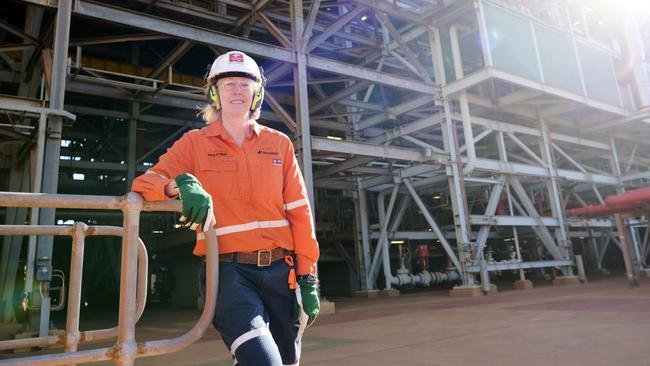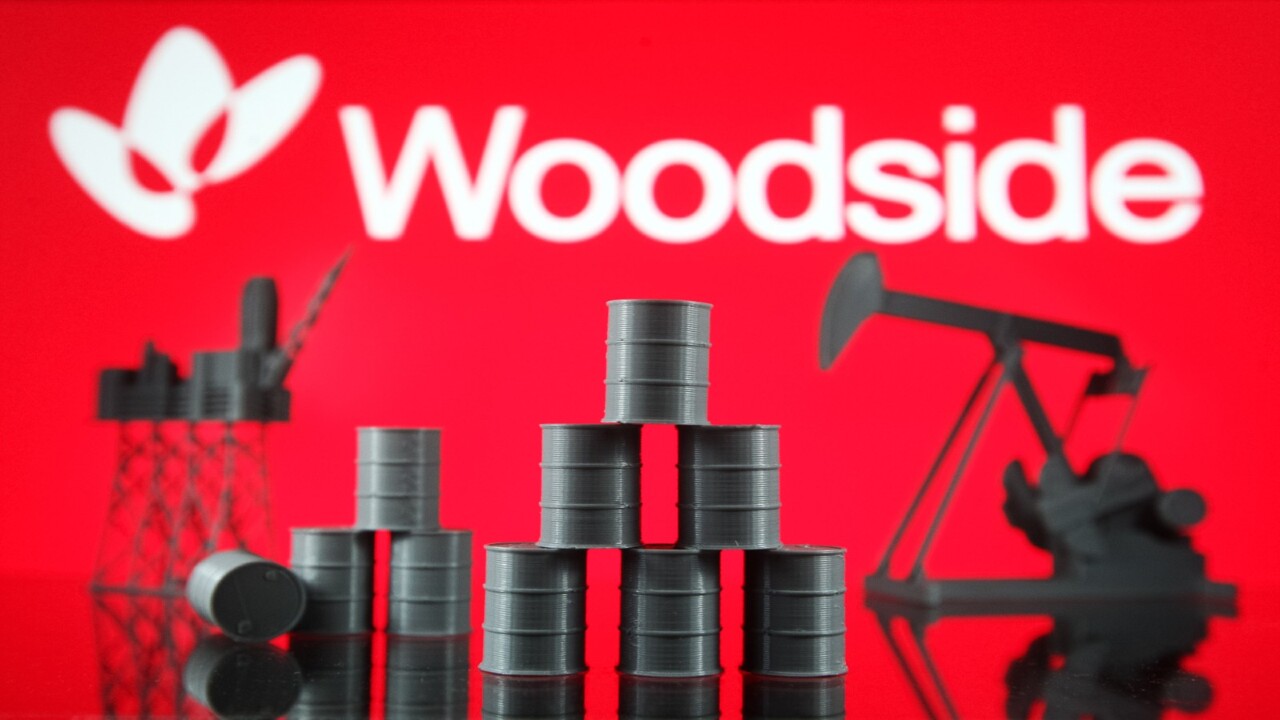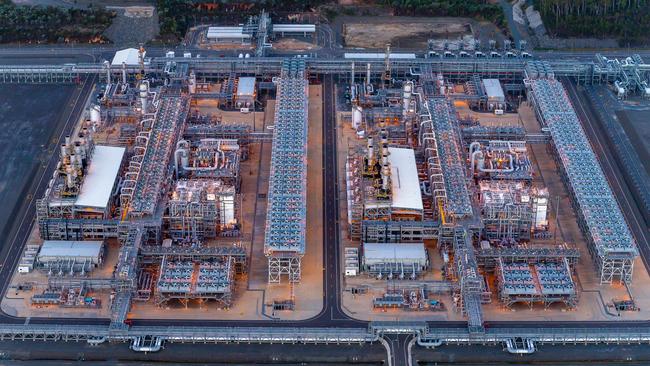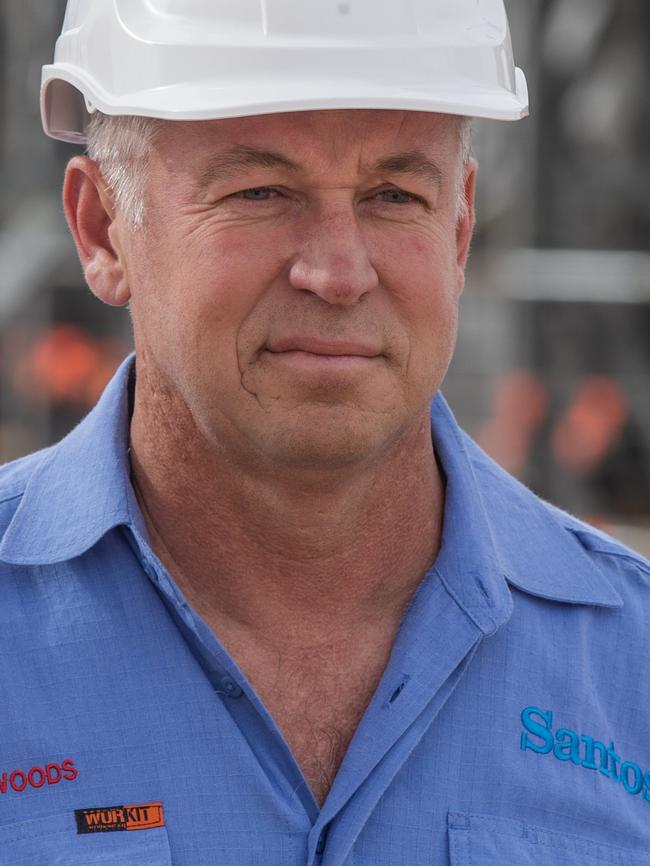‘Too late’ to avert a Victorian gas crisis after a decade of ideology over sensible policy
Woodside Energy says it’s too late to avoid an economically damaging gas shortfall in Victoria thanks to a decade of political opposition to the fossil fuel industry.

Business
Don't miss out on the headlines from Business. Followed categories will be added to My News.
Woodside Energy says it is too late to avoid an economically damaging gas shortfall in Victoria following a decade of political opposition to the fossil fuel industry.
The Victorian government and its federal counterpart insist action is being taken to boost gas output, but Woodside chief executive Meg O’Neill said she believed it was too late to avert the shortfall as developers such as Woodside remained wary of the state’s sceptical attitude towards the fuel source.
“The reality is that the state that was built on the back of oil and gas is now at this stage,” Ms O’Neill said in Melbourne.
“Ideology has stood in the way of sensible energy investment. In times of crises things can move quickly. We’d like to see them move before you get a crisis.”
The comments underscore the expectation that Victoria, Australia’s most gas-dependent state, will be forced to import LNG in a move that could in the short term add to price pressures.
“The main impact of (LNG) imports is price,” Ms O’Neill said. “Rather than having supplies here, you have the cost of taking that, putting through complex pieces of equipment and then putting it on a ship to transport.”

Woodside has exposure to the eastern seaboard through Victoria’s offshore Bass Strait fields.
These have historically supplied about two-thirds of southern Australia’s gas but now face declining production as fields come to the end of their lifespan.
The Australian Energy Market Operator has said that a structural shortfall of gas to the country’s eastern seaboard could emerge as soon as this winter and definitely by 2028.
Ms O’Neill delivered a speech in which she called on governments to move aggressively to bolster supplies, as she cited a six-year wait to secure an extension for a major West Australian gas plant already in operation as evidence of the malaise that is prevalent across governments.
Victoria is widely seen as having Australia’s most aggressive anti-gas policies.
It has set ambitious energy transition targets and banned new gas connections as it moves to curtail demand.
But its heavy industrial base and resident demand during winter means Victoria is particularly exposed to shortfalls of gas, which are rapidly looming as traditional sources of supply begin to wane.

In moves widely seen as an acknowledgment of the dire predicament it faces, Victoria in recent months has moved to hasten approvals.
Ms O’Neill described the broader moves as “green shoots” in the evolving recognition of the importance of gas, but said developers such as Woodside would prioritise other jurisdictions that were longtime supporters of the industry.
Without an urgent and rapid increase in supply, Victoria is increasingly likely to be reliant on imported LNG.
Even the Australian Competition & Consumer Commission conceded in January that LNG imports were increasing likely.
“In the short term, it seems increasingly likely that the southern states will have to import gas to meet demand. The use of LNG imports can provide some greater flexibility in meeting demand in southern states and have a lower risk of asset stranding,” the ACCC said.
“Despite the advantages, LNG import prices may be higher than current domestic gas prices. Imported gas may incur additional costs not currently experienced by gas users on the east coast, including LNG shipping, liquefaction and regasification costs.”
A growing number of developers – led by Andrew Forrest – are moving to establish LNG import terminals. Dr Forrest’s venture is close to completion, while Woodside has partnered with Viva to propose a Victorian development.
While imports would avert possible blackout warnings, higher gas prices through LNG imports would be catastrophic for some heavy users and households, even if the impact could be a year or two away.

The ACCC insists the eastern seaboard has sufficient supplies for this year. In the immediate near term, a 2025 surplus could aid households and businesses – though this is probably only temporary, and industry figures have previously insisted a 2025 gas shortfall could still eventuate despite the ACCC findings.
The outlook has intensified pressure on the federal government to approve new sources of supply.
Labor insists it has approved a series of projects, but the industry insists it continues to take too long and many of the projects under construction are in Queensland, where pipeline constraints will limit the ability of these supplies to meet Victorian demand.
The government insists it cannot cut corners on environmental approvals, and points to its interventions as evidence of its stance of bolstering supply while ensuring affordability.
But Labor has offered a series of exemptions to its centrepiece intervention and offered a pledge to the industry via its future gas strategy that said the fuel source would be critical until 2050.
Beach Energy chief executive Brett Woods said the strategy embodied an improvement in the attitude of the government towards the fuel source.
More Coverage
Originally published as ‘Too late’ to avert a Victorian gas crisis after a decade of ideology over sensible policy





